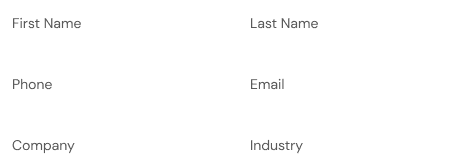
Return to work or lose your job: the problem with Amazon’s hard line on remote work
“It’s not going to work out for you.”
That’s the message Amazon CEO, Andy Jassy, has for employees who want to continue to work remotely. It’s perhaps unsurprising, given how untrustworthy Amazon generally is of its employees and their outputs, but it’s still a hard line to take, given how popular remote and hybrid work has become.
And it’s not just scare tactics. Amazon is now rolling out a new mandate that requires certain kinds of roles to return to their place of work for at least three days a week—or they can say goodbye to their job role. “I don't have data to back it up, but I know it's better," said Mike Hopkins, SVP of Amazon Video and Studios, in a leaked video.
This kind of thinking marries up with a lot of people’s fear of remote work. We don’t necessarily know why we don’t trust it, we just don’t. It’s different, and therefore scary. But we’ve learned a great deal about widespread remote and hybrid work since the pandemic—most of it positive.
But while the statistics specifically around productivity vary, the fact is, remote work is about more than getting as much done as we possibly can. It’s about rethinking the way we work long-term, and whether the model that we’ve been using for the last hundred years is actually good for people.
It might sound controversial (I’m sure it would to Amazon’s leadership team) but the wellbeing of workers should come before blindly achieving profits. And, even then, it’s been proven that happy employees are actually better for business. The stats around remote work and mental wellbeing are very hard to dispute. In a survey by FlexJobs, 96% of workers believed a remote or hybrid work arrangement would be best for their mental health. Similarly, for anyone who has a mental or physical disability, remote work completely changes the ballpark of what they can achieve and do for a career. This is why rolling out the same remote work regulations for all employees isn’t as ‘fair’ as it sounds. Yes, it’s ensuring that all employees follow the same rules, but it doesn’t account for the fact that employees themselves have different wants and needs.
There is no blanket opinion on remote work—the key is developing an agreed sense of trust between employee and employer. Fostering a culture of trust works for everyone involved, and the outcomes go much further than where you work. When a business and its people have a shared trust in one another, they are more productive, positive, creative and profitable. It’s win-win.
At Remotify, we specialise in making remote work the best it can be—for both leaders and employees. By handling the complexities and championing benefits, we make the process of switching to remote and hybrid work easy. Want to find out how we can do it for you? Book a call with a member of our friendly team today!
Spending Too
Much Time
Onboarding?
your remote hiring in the
Philippines, excellently.
Say Goodbye to High Costs!
Request Your Free Consultation Today andSave a Massive 70% on Your Workforce!

Ready to thrive in a remote-first work environment?


